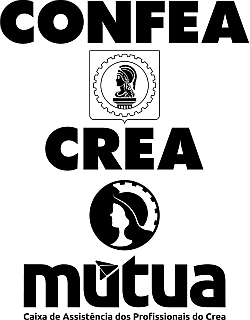The need for a social pact to facilitate urban mobility planning
DOI:
https://doi.org/10.14295/transportes.v29i2.2409Keywords:
Social pact, Urban mobility, Political feasibilityAbstract
In this article we have sought to identify strategies to facilitate urban mobility planning in Brazilian cities. These plans follow bold guidelines, such as giving priority to active and collective public transport modes. The challenge, therefore, is to overcome the resistance of social agents who are unwilling to make sacrifices for the benefit of the community. Among the methodological procedures, the authors analyze the main challenges facing urban mobility in Brazil, introduce Mancur Olson's ideas on the logic behind collective action to transport engineering and evaluate two proposals for an urban
mobility pact: that of the then President Dilma Rousseff and that of the Ipea. The result of this analysis points to the need for an urban mobility pact following “win-win”
reasoning. A pact that involves not only the public authorities, but also various private social agents, and according to “win-win” reasoning: they win if they participate and the community wins with their participation.
Downloads
References
Balbim, R.; V. Lima Neto; E. Galindo and C. Krause (2013a) Ampliação do acesso ao Transporte Público Urbano - Propostas em Tramitação no Congresso Nacional. Nota Técnica no03 DIRUR/IPEA, Brasília, DF.
Balbim, R.; V. Lima Neto; E. Galindo and C. Krause (2013b) Transporte Integrado Social – uma proposta para o pacto da mobili-dade urbana. Nota Técnica no04 DIRUR/IPEA, Brasília, DF.
Brazil (2012) Law nº 12,587 January 3, 2012 – Introducing guidelines for National Urban Mobility Policy and other measures.
Carvalho, C. H. R.; A. Gomide; R. H. M. Pereira; L. F. Mation; R. Balbim; V. C. Lima Neto; E. P. Galindo; C. Krause and E. P. Guedes (2013) Tarifação e financiamento do transporte público urbano. Nota Técnica no02 DIRUR/IPEA, Brasília, DF.
Chauí, M. (2013) As manifestações de junho de 2013 na cidade de São Paulo. Revista Teoria e Debate. Available at: <https://www.geledes.org.br/marilena-chaui-as-manifestacoes-de-junho-de-2013-na-cidade-de-sao-paulo/> Accessed on March 5, 2019.
Douglas, M. J.; Watkins, S. J.; Gorman, D. R.; and Higgins, M. (2011) Are cars the new tobacco ? Journal of Public Health, 33(2), pp. 160–169. DOI:10.1093/pubmed/fdr032
Leal, J. E. (2015) A mobilidade urbana na Região Metropolitana do Rio de Janeiro. In: Pinheiro, A. C. and C. Frischtak (eds.) Mobilidade Urbana: Desafios e Perspectivas para a Cidade Brasileiras. FGV/IBRE, Rio de Janeiro.
Miguel, J. P. M. and F. A. Rodriguez (2019) La tarificación vial en el marco de las políticas de transporte urbano. Gestión y Política Pública, v. XXVIII, n. 1, pp. 175–206. DOI:10.29265/gypp.v28i1.545
Olson, M. (2015) A Lógica da Ação Coletiva: Os Benefícios Públicos e uma Teoria dos Grupos Sociais. [trad.: F. Fernandez]. Editora da Universidade de São Paulo, São Paulo. [Original work published in 1965. Original title: The Logic of Collective Action: Public Goods and the Theory of Groups]
Orrico Filho, R. D.; A. Brasileiro and J. A. A. S. Fortes (1996) Produtividade e competitividade na regulamentação do transpor-te urbano: nove casos brasileiros. In: Orrico Filho, R. D.; A. Brasileiro; E. M. dos Santos and J. J. G. de Aragão (eds.) Ônibus urbano – Regulamentação e mercados. LGE, Brasília.
Rodrigues, J. M. (2016) Qual o estado da mobilidade urbana no Brasil? In: Paula, M. and D. D. Bartelt. (eds.). Mobilidade Urba-na no Brasil: desafios e alternativas. Fundação Heirich Boll, Rio de Janeiro.
Torres, H. M. (2007) Eficiência, eqüidade e aceitabilidade do pedágio urbano. Doctoral thesis. Transport Engineering Program, Coppe, Federal University of Rio de Janeiro. Available: <https://www.pet.coppe.ufrj.br/images/documentos/dissertacoes/Disserta%C3%A7%C3%A3o_Vinicius_Henter_Carneiro_Bastos_-_Vers%C3%A3o_final_p%C3%B3s-defesa.pdf>
Downloads
Published
How to Cite
Issue
Section
License
Copyright (c) 2021 Vinicius Henter Carneiro Bastos, Renato Guimarães Ribeiro, Romulo Dante Orrico Filho

This work is licensed under a Creative Commons Attribution 4.0 International License.
Authors who submit papers for publication by TRANSPORTES agree to the following terms:
- The authors retain the copyright and grant Transportes the right of first publication of the manuscript, without any financial charge, and waive any other remuneration for its publication by ANPET.
- Upon publication by Transportes, the manuscript is automatically licensed under the Creative Commons License CC BY 4.0 license. This license permits the work to be shared with proper attribution to the authors and its original publication in this journal.
- Authors are authorized to enter into additional separate contracts for the non-exclusive distribution of the version of the manuscript published in this journal (e.g., publishing in an institutional repository or as a book chapter), with recognition of the initial publication in this journal, provided that such a contract does not imply an endorsement of the content of the manuscript or the new medium by ANPET.
- Authors are permitted and encouraged to publish and distribute their work online (e.g., in institutional repositories or on their personal websites) after the editorial process is complete. As Transportes provides open access to all published issues, authors are encouraged to use links to the DOI of their article in these cases.
- Authors guarantee that they have obtained the necessary authorization from their employers for the transfer of rights under this agreement, if these employers hold any copyright over the manuscript. Additionally, authors assume all responsibility for any copyright infringements by these employers, releasing ANPET and Transportes from any responsibility in this regard.
- Authors assume full responsibility for the content of the manuscript, including the necessary and appropriate authorizations for the disclosure of collected data and obtained results, releasing ANPET and Transportes from any responsibility in this regard.










